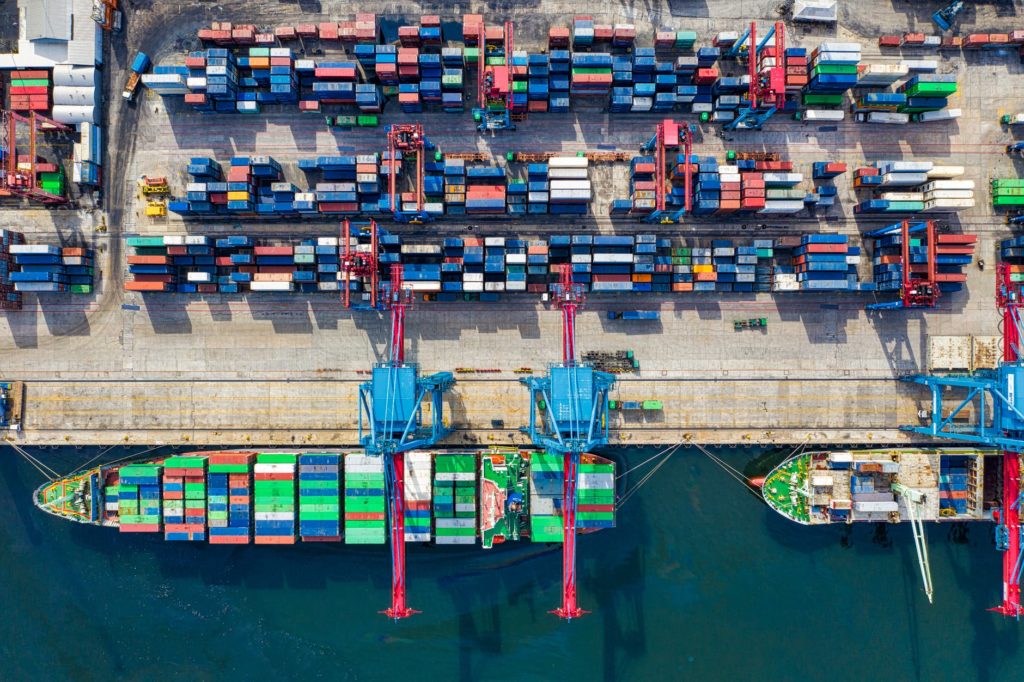
Department of Strategy and International Business, University of Birmingham
Almost everyone has come to realise the importance of supply chains during the Covid-19 crisis, as well as the wide range of vitally important products made overseas. The corona pandemic has, at times, caused panic buying resulting in shortages of toilet rolls, hand sanitisers, as well as basic food supplies. Some countries have also experienced shortages of medical equipment such as PPE and ventilators, many of which are manufactured in other countries. Yet it takes time to organise local production to replace imported goods. The sudden and severe disruption of global value chains has revealed how fragile and vulnerable the modern global supply chains really are. This has drawn the attention of policy makers, practitioners and academia, and has made people rethink global supply chains and the urgency that companies re-design their current system in order to be more able to respond to a crisis like Covid-19.
Global supply chains before coronavirus
Modern global supply chains have been built on efficiency logic. Companies considered cost, quality and delivery to be the key factors when designing their global supply chains. Such a design is good for companies’ profits and consumers’ pockets. We have taken global supply chains for granted as they can often be managed seamlessly based on the just-in-time and lean production principle. Such supply chains function well in a stable external environment with the support of national governments facilitating the smooth movement of capital, people and goods around the world with negligible barriers. Any trade restrictions have generally been periodic. This means that multinationals have generally been able to organise and manage their production and supply chains without much interference by the host-country government, though Brexit and the trade war between the US and China have marked a trend for deglobalisation or the reversal of globalisation.
Global supply chains after coronavirus
The pandemic has made one thing clear, that companies cannot only rely on just- enough and just-in-time approaches as they prioritise efficiency over resilience. However, resilience is crucial in the face of global pandemics, as well as natural disasters, climate change and geopolitical tensions. This implies that the efficiency logic of a global supply chain is not sufficient, and a number of other factors need to be taken into account.
How to improve the global supply chain
- Companies should place more emphasis on resilience and flexibility
This may involve the localisation of global value chains or bringing some parts of the supply chain back home, and nearer the customer base, thus shortening the supply chain. In some cases, it may be possible to relocate production processes to countries with high labour costs and low capital costs due to advances in production processes such as additive manufacturing. - Diversify supply chains and reduce the overreliance on select suppliers
This would help to minimise the impact of sudden increases in costs or the unavailability of components, and could help to ensure there are substitutes available if one supplier in a particular country encounters difficulties. This would help to avoid a sudden break in global supply chains. While the shift from a concentrated single source of supply may reduce efficiency in certain ways, it would result in increased flexibility and resilience when facing crises. - Restrict freedom to source and produce goods around the world
There is already a growing concern over national security and sovereignty which may lead to legal and regulatory controls on the sourcing of resources, spare parts and components internationally. Companies may need to pay special attention to the trend of politicising global supply chains by national governments and need to consider how political and ideological tensions between, for example, the US and China, may affect their supply chains.
The politicisation of global supply chains may be more likely in some strategic sectors which involve, for example, medical products, cutting-edge technology and national security. Covid-19 may encourage politicians to legitimatise protectionism and advocate a stronger nationalist agenda. Companies may need to respond to political barriers and tensions by modifying their global supply chains to take account of political considerations. - Create environmentally sustainable global supply chains
One result of Covid-19 is that consumers may demand supply chains which are more robust and sustainable both locally and internationally. A greater percentage of people may accept that we have to pay more for a greener supply chain and reduced carbon footprint. More fundamentally, more people may be willing to change their life styles from ‘more for less’ to ‘less for more’. Relocalising and shortening the supply chains may result in more sustainable development as well as a bluer sky and better coexistence with wildlife. Such a consideration would involve both government policy and multiple stakeholders.
To sum up, companies cannot assume they can carry business as usual post Covid-19. This pandemic may result in a change of priorities leading to the establishment of newly designed global supply chains which address multiple demands and re-balance our priorities.
